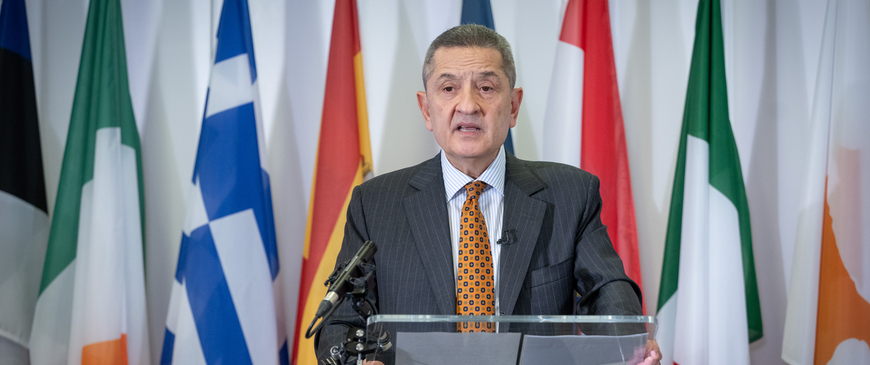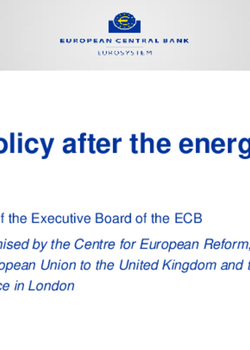
Discussion on 'Monetary policy after the energy shock'
The energy price shock, combined with the reopening of the economy after the pandemic, has driven inflation to persistently high levels across advanced economies and economic sectors. In reaction, central banks have raised interest rates to avoid inflation becoming entrenched. Recently, energy commodity prices have come down, triggering hopes that inflation may have peaked. But concern remains that the fiscal measures and wage demands triggered by the energy shock, as well as resilient labour markets and economic conditions, could keep inflation too high. How should central banks adjust their monetary policy in this environment? And what is the appropriate combination of monetary and fiscal measures to tame inflation at the minimum economic cost?
John Springford, the CER's Deputy Director, and Pedro Serrano, the EU's Ambassador to the UK, opened the event, after which Fabio Panetta, Member of the European Central Bank's Executive Board, delivered a speech providing a euro area perspective. DeAnne Julius, Senior Adviser and Distinguished Fellow in the Global Economy and Finance Programme at Chatham House, then chaired a Q&A discussion with the audience.
Co-organised by the Centre for European Reform, the Delegation of the European Union to the United Kingdom and the European Central Bank Representation in London.

